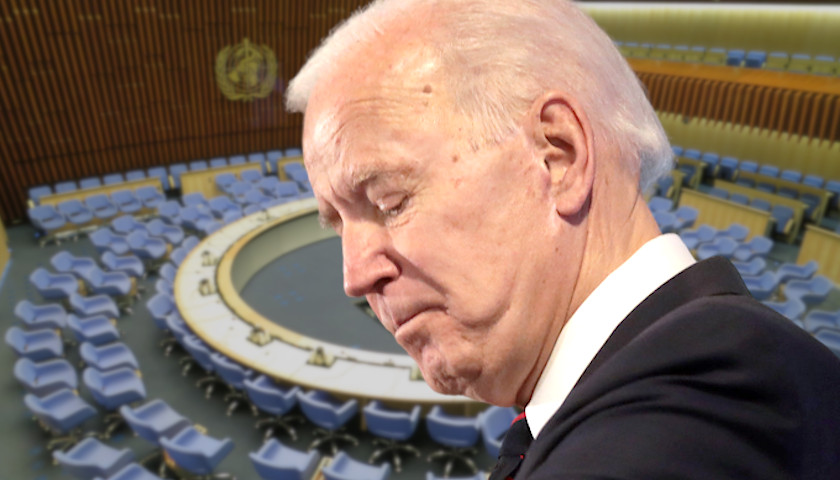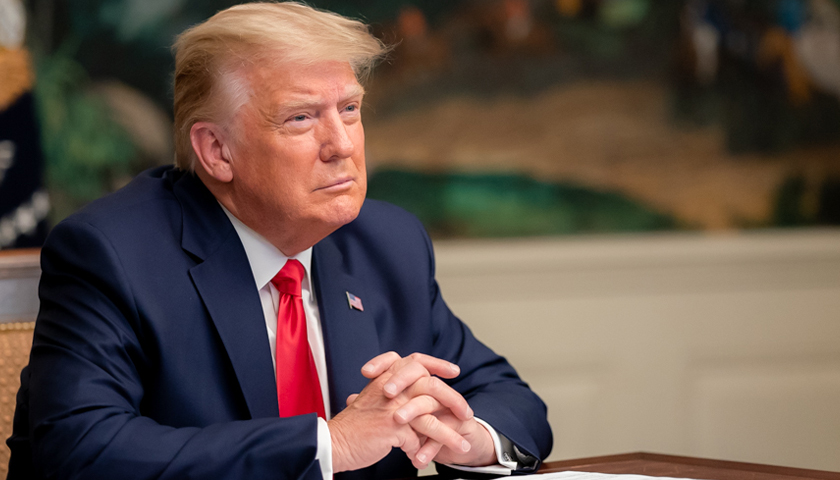Events over the past months have exposed a very stark divide between the globalist, collectivist, “woke” authorities of Europe and the Make America Great Again (MAGA) patriot movement here in the United States. To be frank, it is almost as if the snide, effete elitists who control the nations of the European continent want to rub our noses in their horror show.
Read MoreTag: globalism
Mike Benz Details How the Foreign Policy Establishment is Actively Fighting Populism in the U.S.
Mike Benz, former Trump state department official and current Executive Director of the Foundation for Freedom Online, joined Monday’s edition of Steve Bannon’s War Room where he explained why the foreign policy establishment is the main driver of censorship in the U.S.
Read MoreCommentary: American Globalists’ Motivation
It is too easy, and dangerously misleading, to examine the most controversial globalist policies combined with America’s most obvious weaknesses and conclude that American power, and the future of globalism is in jeopardy. In both there is nuance and hidden strength. Understanding this ambiguity offers both hope for the future and a clearer sense of what choices face Americans today.
It is important to recognize that while other Western Nations from New Zealand to Sweden are participants in globalist policies, and that globalist theories may have originated from Europe, the influencers and institutions turning them into policy and pushing them onto the rest of the world are almost all American.
Read MoreCommentary: America for Sale
The dollar’s status as the sole transaction and reserve currency of the world gives America’s federal government unique privileges. International demand for dollars enables federal budget deficits. It also creates an incentive for trade deficits, because incoming investments effectively collateralize American currency. To perpetuate this multi-decade debt binge, America’s real estate and corporate assets are for sale to any foreign investor with surplus dollars.
Read MoreCommentary: America and the Future of Globalism
If globalization is the economic integration of nations in a world where technology has all but erased once formidable barriers to long-distance communication and transportation, globalism is its cultural and ideological counterpart. In theory, the same dynamics might apply. As economies merge, cultures merge as well. As we move deeper into the 21st century, a global melting pot blends everything and everyone together. A planetary civilization marches united into a future of peaceful coexistence, ecological restoration, human life extension, and galactic exploration.
Read MoreCommentary: Globalism and the Georgia Stones
On July 6, in an act of vandalism for which the culprits are still at large, one of the four “Georgia Guidestones” was blown apart. The damage was so severe that the entire monument was rendered too unstable to leave standing. For safety reasons, state officials almost immediately demolished the rest of the monument.
Read MoreBiden Proposal to Surrender U.S. Health Sovereignty to World Health Organization Dealt Stunning Defeat
The Biden administration was dealt a stunning blow at the World Health Assembly (WHA) last week in its attempt to push through 13 amendments to the International Health Regulations (IHR) that would hand over U.S. decision-making power over healthcare policies to the World Health Organization (WHO).
At the WHA in Geneva, Switzerland, Biden’s proposed amendments – which it quietly sent to the WHO in January – received hearty support from nations such as the United Kingdom and Australia, as well as from the European Union (EU) – all of which urged nation member-states of the WHO to surrender their healthcare sovereignty to the global health agency of the United Nations.
Read MoreCommentary: Revisiting Prudent American Realism
I have long deplored the poverty of international relations (IR) theory, which pits “realists” of all varieties against “liberals” or advocates of “liberal internationalism” and its corollary, “cooperative security.” In essence, the debate between these two schools is a dispute between Thucydides and Machiavelli on the one hand and Kant on the other.
Realists argue that states are driven by naked interest. In a system of “international anarchy,” states face a security dilemma that leads to arms racing, offensive and defensive alliances, and ultimately war. For realists, the international system is conflictual. In contrast, liberal internationalists argue that the international system is potentially cooperative. Diplomacy trumps force. For realists, liberals are too abstract and place too much emphasis on the “good side” of human nature. For liberals, realists are too pessimistic and cynical. In addition, say liberals, realism is too parsimonious: it fails adequately to explain the world.
Read More







